I'M ONE TO TALK
Our Blog Posts will help you reach your full potential in becoming a confident conversationalist. New topics each week.
Sports Fandom Your Way

I resisted the urge to say what I really wanted to say after being confronted by a non-sports fan a few weeks ago. Not only was he not a sports fan, but was clearly and vocally irritated at those of us in the bar watching and cheering during a recent college football game.
“You know they can’t hear you, right? There’s no need to yell. Did you even go to that school that you’re cheering for?”
Instead of pointing out he was in a bar with multiple TVs intended for sports viewing, I turned said, “Actually, our friend right there did go to Stanford and we’re cheering for his alma mater.” There was more muttering and passive aggressive comments about how dumb sports fans are, but few heard what he was saying because we were cheering too loud at the big comeback.
There are a couple things I want to point out from this exchange, starting with the fact it was a guy who was opposed to sports, sports fandom, cheering for sports and sports talk. (He probably could have chosen a better bar or a...
Sports Conversation Starters for Your Workweek
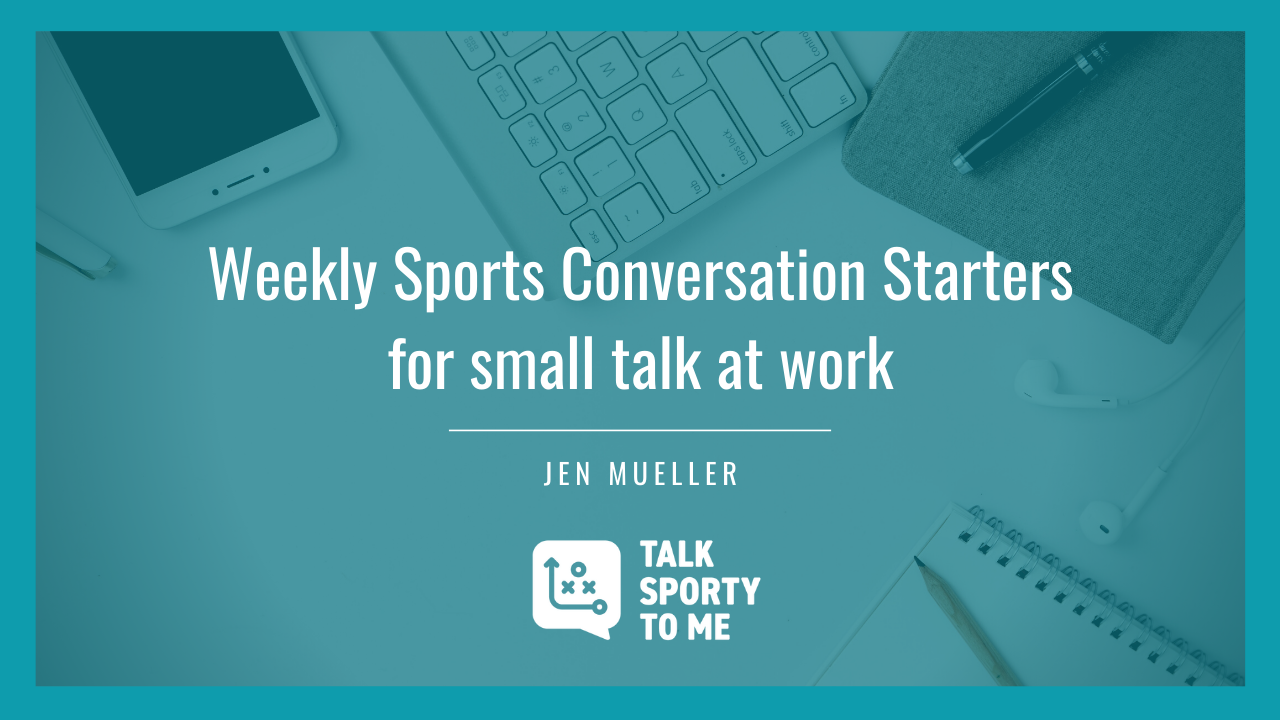
I had a lot of tough conversations yesterday. It goes with the territory and the job as an NFL sideline reporter. The Seahawks lost and it was my job to talk to guys about it. As you can imagine it’s not fun asking about mistakes and missed opportunities. It does however give me a chance to practice a conversation skill needed in business.
Lots of folks shy away from and put off tough conversations because they don’t have a lot of practice in handling those situations. You don’t have to be an NFL sideline reporter to practice. You can be a sports fan talking about a loss by your favorite team.
Sports is more than stats and scores. Sports small talk gives you a chance to practice conversation skills you need in business. Use these topics to get the ball rolling this week.

Sports Conversation Starters for Your Workweek
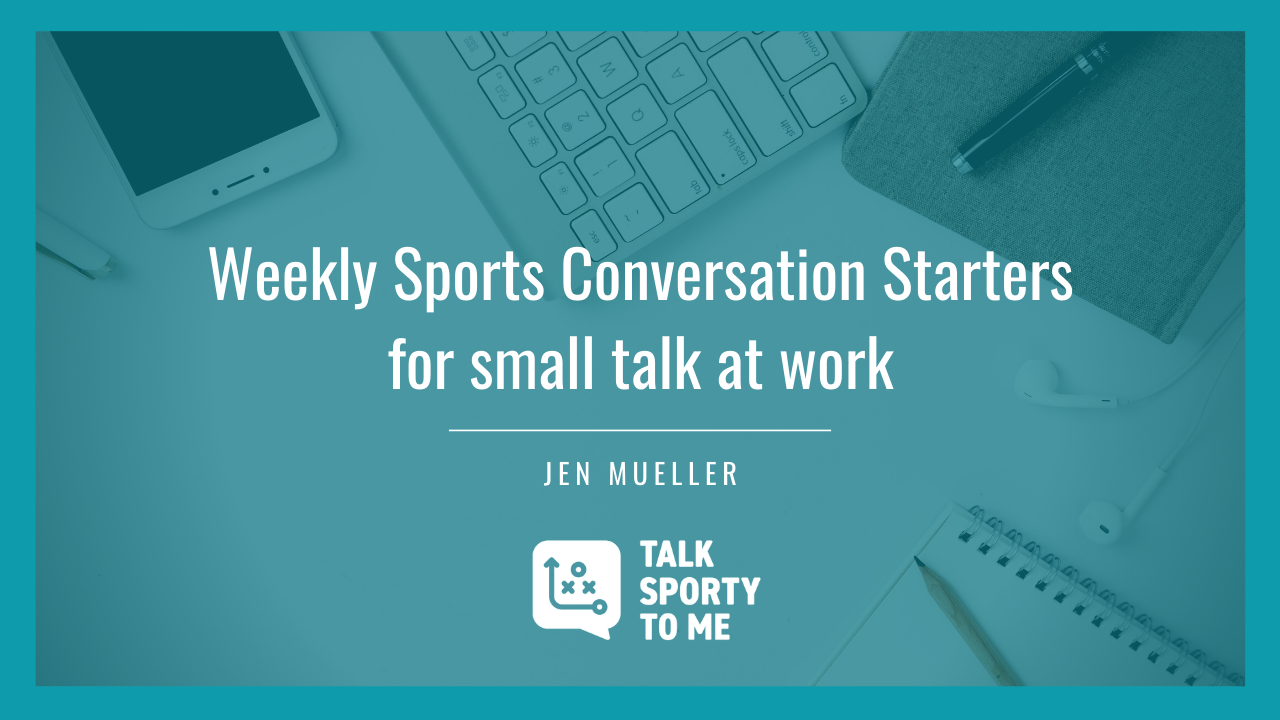
I rarely get a Sunday off during the football season, but it happened yesterday. Here’s what I did – watched football like a fan. I spent part of the day on the couch. I also did laundry, meal prep and a little organizing around the house. In other words, for as much as I love sports I did not dedicate my full attention to sports for the entire day. As a result, I’ll be asking other fans what they saw/watched over the weekend.
Here's what you need to know – you don’t need all the answers to start a sports conversation. You don’t have to watch the entire game to be considered a sports fan. Start where you are. Join the conversation with whatever you know. These sports topics can help.

What a Pick 6 and Your Success Have in Common

I am all for efficiency. If you’ve ever seen me carry groceries into the house you know the lengths I will go to maximize efficiency and ensure I make just one trip.
My daily schedule is maximized for efficiency. I don’t like wasted time or the feeling that I’m bouncing around between tasks. I want things streamlined and straightforward.
If you can relate, I want to offer this reminder – your career development and success won’t be as streamlined and straightforward. The highlight of Seahawks rookie Devon Witherspoon and his pick-six during the Monday Night Football game against the NY Giants did a great job of highlighting what success actually looks like. It’s a not a straight line. It’s a zig zag.
Take it from someone who’s career path looks a lot like that interception return, there’s a benefit when things don’t go according to plan. There’s also a way to use football and sports talk in general to Think Outside the Box Scores.
Let’s start with the overall intrigue. The s...
Sports Conversation Starters for Your Workweek
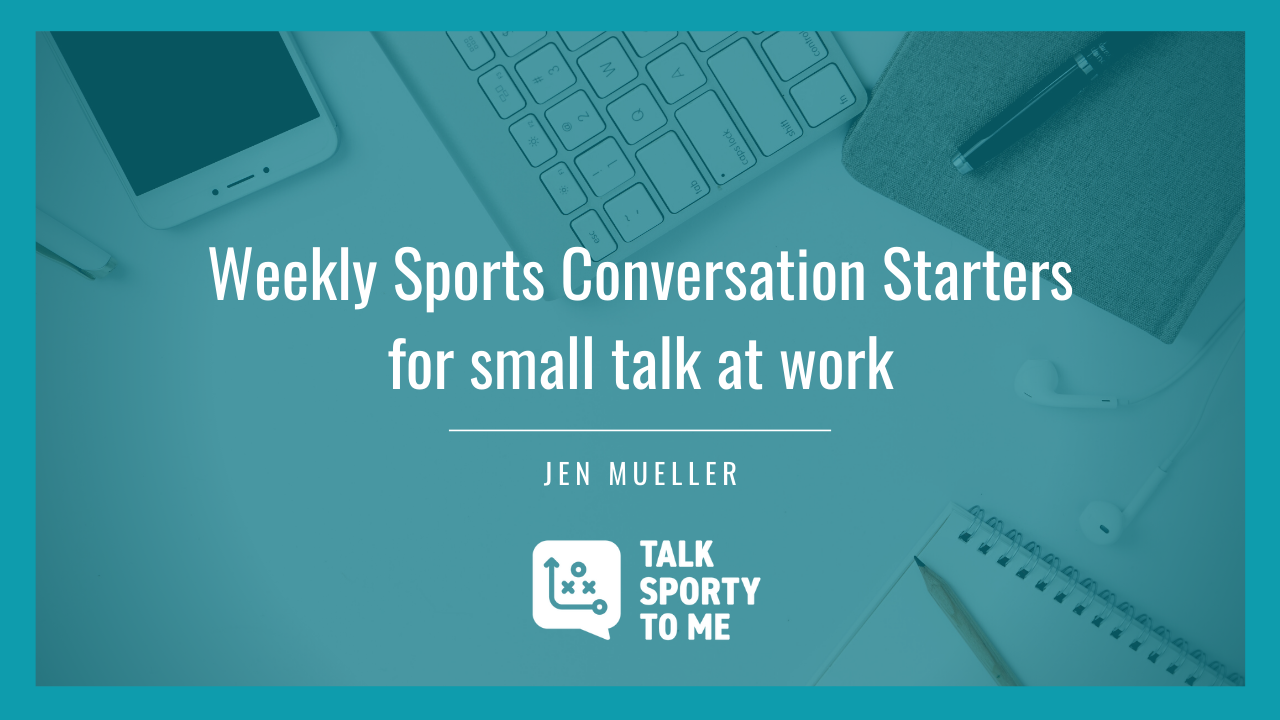
Taylor Swift was at the Chiefs game in New York last night. She’s apparently/allegedly/supposedly/probably dating Kansas City tight end Travis Kelce.
Those are sentences I never expected to type in this space, however… it’s the perfect example of sports talk crossing into different conversation topics and engaging new fans. You don’t have to talk sports to be part of a sports conversation. Kelce and TSwift are the most recent and relevant example.
Use your interests to find your lane and join the conversation. Here are a few addition sports topics to help.

It's Not How You Start... it's how you finish

It’s not how you start… it’s how you finish.
I’ve heard Seahawks head coach Pete Carroll use that phrase countless time over the last 13 seasons. It’s part of his philosophy. A fast start, scoring first, having the lead at halftime can make it easier to win the game, but ultimately it comes down to how the fourth quarter is played.
I couldn’t help but thinking of that phrase during the final week of the baseball regular season. Given the hype, the fast starts and the obvious dominance of a few teams, there’s no way it should have come down to the final two games of the season to determine playoff spots. But it did. Because it’s not how you start, it’s how you finish.
When we think outside the box scores, that phrase leads us toward Q4 goals and 2024 planning.
What do you need to finish strong?
Maybe it’s more resources, but it could also be more stamina. Or perhaps it’s fewer weekly meetings so you can create larger blocks of time to do the work.
How can you use where you’re a...
Sports Conversation Starters for Your Workweek
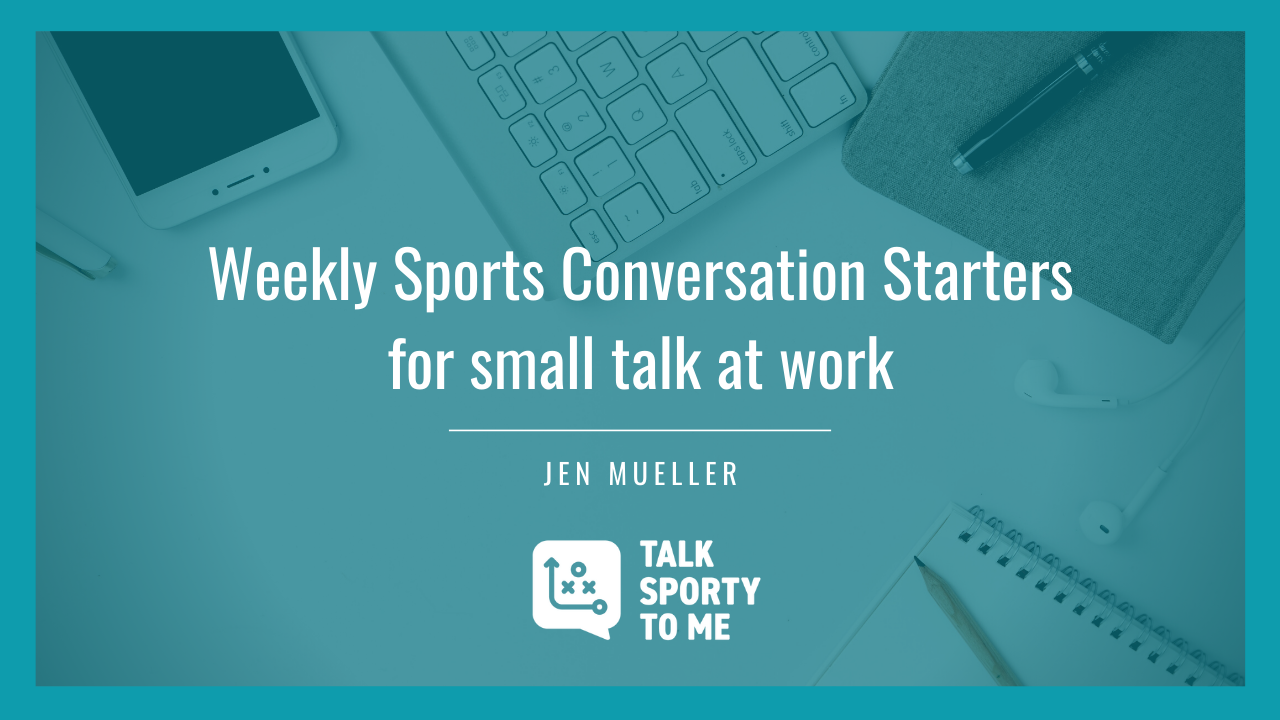
Reality TV rarely grabs my attention – unless it’s sports.
If you want something truly unscripted, emotional and dramatic give sports a try. I promise the final week of regular season MLB games will deliver. There’s still division title on the line and Wild Card spots up for grabs.
Just like in a reality series, you don’t have to watch the whole episode (game) to find out what happens. You can watch the highlights or ask a fan to fill in the blanks for you.
Baseball is at the top of my list this week, but here is a list of topics you can work into small talk this week.

Sports Conversation Starters for Your Workweek

Conversations are a gift of time.
That thought struck me following a conversation with Seahawks GM John Schneider who was raving about a meeting that lasted 2 ½ hours. The information gathered in that meeting was important and useful but he kept coming back to the gift of time - “Can you believe he took 2 ½ hours out of his day to talk to me?”
Your conversations don’t need to last 2 ½ hours. And small talk doesn’t have to be a waste of time. It can be a gift of time.
You can use these sports topics to get the ball rolling in those conversations.

Sports Conversation Starters for Your Workweek
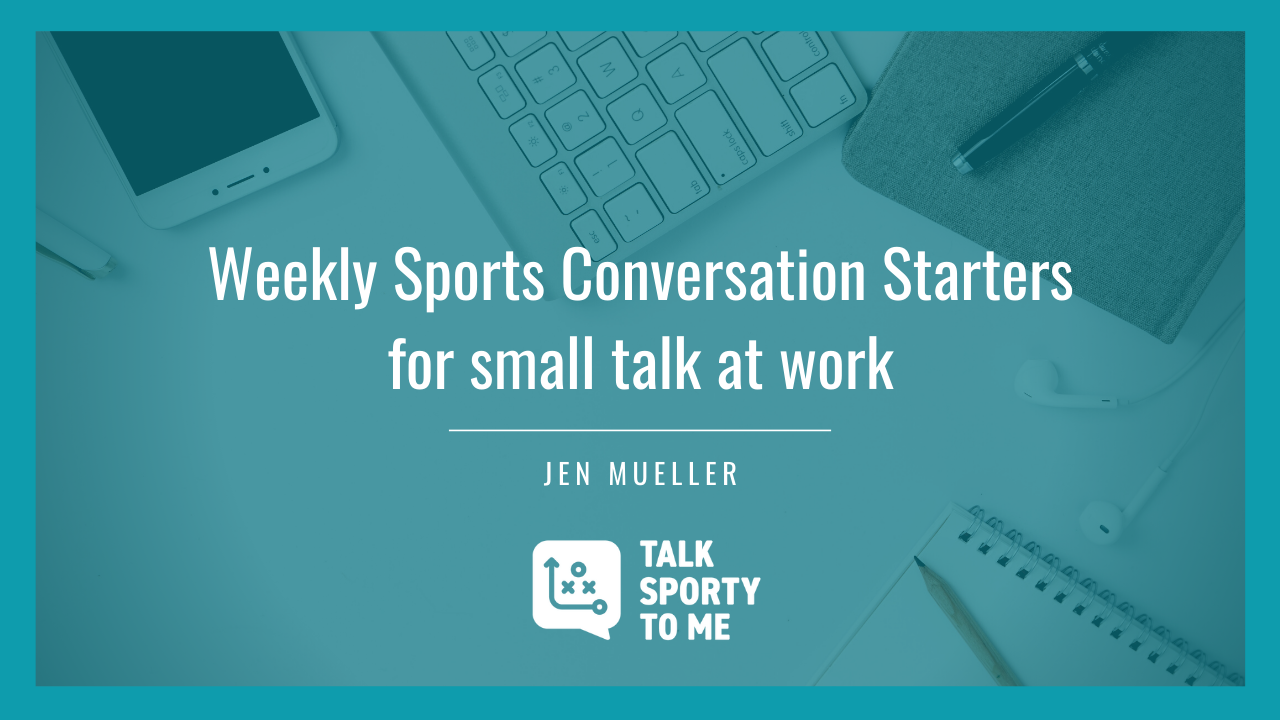
I was wrong. I didn't expect that outcome.
That's a fairly normal thing to say in a sports conversation. In fact, that conversation is fairly easy and straightforward based on the final score and the stats.
Admitting you're wrong in a business conversation can be more difficult or uncomfortable. Practicing that kind of vulnerability helps. Sports small talk is a form of practice. It's just one of the ways small talk can be useful in bigger business conversations.
Speaking of, here's a list of sports topics making news this week.

Sports Conversation Starters for Your Workweek

You don’t have to be a football fan to appreciate one of the most impressive stats from the weekend games. 546 pushups. That was the total number completed by the Oregon Ducks mascot as a result of the Ducks 81-7 win over Portland State. (In case you’re not familiar with this particular tradition, the mascot does pushups following each Oregon score.)
It’s a sports adjacent topic that can definitely spark some conversation this week – and maybe cause you to rethink your workout strategy.
If you’d prefer more traditional sports talk choose one of the talking points from the list below.



